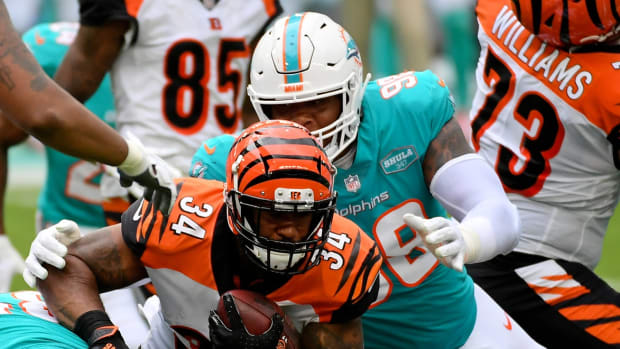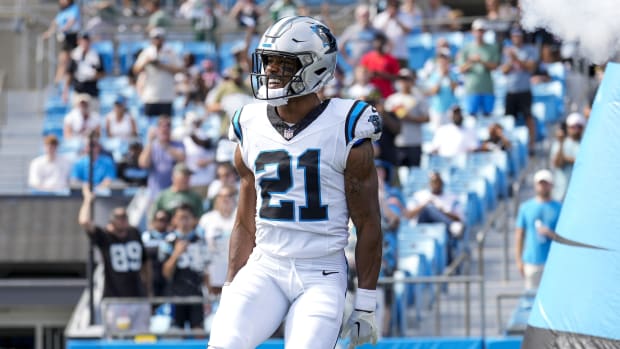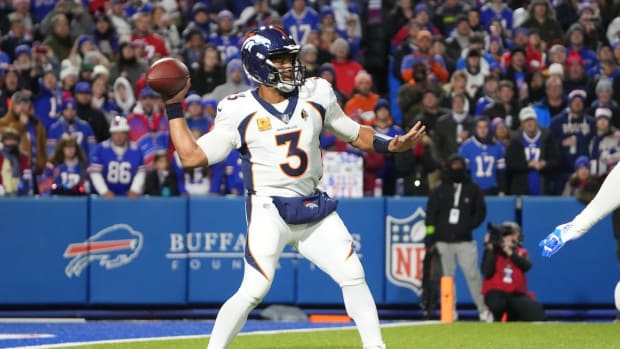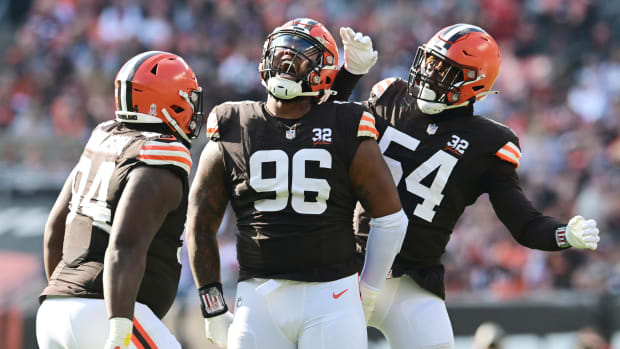Can President Donald Trump Legally Command the NFL To Suspend, Fire Players?
President Donald Trump on Sunday continued and hardened his crusade against NFL players who protest the national anthem.
The Sunday morning tweets follow Trump’s tweet on Saturday criticizing NFL commissioner Roger Goodell for supporting the right of NFL players to protest. . Goodell’s statement came in the wake Trump’s speech in Alabama on Friday in which the President urged NFL owners to “fire” protesting players (the legal ramifications of NFL teams “firing” players for protesting are discussed here).
While Trump’s remarks on Friday were couched as recommendations, his tweets on Sunday seem more like directives. Is it legal for the President to command the NFL to fire players?
The answer is likely yes, for three reasons.
After Trump’s Comments, a Watershed NFL Sunday?
Trump’s First Amendment right
The President, like all Americans, has a First Amendment right to free speech. Through his active and blunt use of Twitter, Trump has arguably taken advantage of this right more so than any other President. It is perhaps ironic a law that Trump might not value in the context of protesting players would simultaneously protect him. Yet the First Amendment guarantees the President the right to offer opinions about sports controversies and countless other topics.
Trump can’t force the NFL to take action
Given that the NFL is a private entity, Trump’s urging that protesting players be sanctioned carries no weight of law. Simply put, the President does not have the legal capacity to require the NFL to take any action against protesting players. The ability of the league or an NFL team to sanction players is governed by legal documents—namely, player contracts and the collective bargaining agreement between the NFL and NFLPA.
This point underscores the fact that the NFL has not always embraced player free speech and that it doesn’t have to, either. To be sure, the league imposes rigid, even suffocating, rules on equipment and player celebrations. Such an approach has at times stifled player expression. For example, a couple of years ago Pittsburgh Steelers running back DeAngelo Williams asked the league if he could wear pink on his uniform throughout the season as a way of honoring his mother, Sandra Hill, who had passed away from breast cancer. The league rejected William’s request on grounds that it would violate player uniform rules.
One could logically denounce the NFL as hypocritical when it permits player anthem protests but denies commemorations of those who lost their lives due to cancer. But remember, the NFL is a private entity. It isn’t required to be consistent unless a contract or other legal instrument compels consistency.
Trump Calls on NFL Owners to Fire Players Who Protest, and Mocks Efforts to Make the Game Safer
A related federal statute does not seem to apply to Trump’s remarks
Some have suggested 18 U.S. Code § 227 as a law that could be used against Trump in response to his various statements about private businesses, including the NFL. This law prohibits the President, as well as members of Congress and other federal officials, from “wrongfully influencing a private entity’s employment decisions.” Persons convicted under this statute face up to 15 years in prison and disqualification from public office.
Trump continuously recommending, even commanding, that protesting players be fired or punished seems to fit 18 U.S. Code § 227’s basic definition.
Like in many statutes, however, qualifying language substantially limits the applicability of 18 U.S. Code Sec. 227. In order for it to apply, Trump must make his statements “with the intent to influence, solely on the basis of partisan political affiliation” (emphasis added).
It seems like a stretch to argue that Trump’s directive to league officials and owners reflects his “intent to influence solely on the basis of partisan political affiliation.” Just the opposite, actually, a growing list of NFL owners who frequently support Republican political candidates have criticized Trump, a Republican, for his statements about protesting NFL players. Those owners include Miami Dolphins owner Stephen Ross, who on Saturday wrote, “We need to seek to understand each other and have civil discourse instead of condemnation and sound bites.” Likewise, New England Patriots owner Robert Kraft—a close friend of Trump and supporter of Trump’s campaign—chastised the President on Sunday. Kraft expressed that he was “deeply disappointed” by Trump’s remarks about protesting players and that he “supports [players’] right to peacefully affect social change.” As to Goodell, a recipient of Trump’s scorn, he has been identified as a Republican and is the son of a former Republican U.S. Senator (the late U.S. Senator Charles Goodell of New York).
NFL Owners Defend Players in Response to Donald Trump’s Criticism
Even if Trump’s statements are legal, they may not be appropriate or effective
The fact that the President can say something doesn’t mean he should say it. It seems odd that Trump would invest so much time and energy into protesting NFL players given the long list of more pressing and important topics, such as a worsening nuclear crisis with North Korea and disaster relief efforts for areas of the country impacted by hurricanes. Yet of the President’s five most recent tweets, three concern the NFL (the other two are about North Korean leader Kim Jong-Un, whom Trump calls “Little Rocket Man,” and U.S. Senator John McCain’s opposition to the Graham-Cassidy health care bill).
Also, Trump’s desire to see fewer players protest will likely backfire, perhaps badly. The President’s comments will probably lead to far more players protesting. Some will join because of their opposition to Trump’s statements about protesting players, particularly his use of the phrase “son of a bitch.” That derogatory remark was an apparent reference to Colin Kaepernick.
No doubt unintentionally, Trump has brought the league, owners and players together in ways that seemed unimaginable 72 hours ago. The league and the NFLPA have experienced deeply strained relations in recent years, in part due to mutual distrust and in part due to frustration over NFL player punishments that were based on questionable evidence (Tom Brady, Ezekiel Elliott). Yet now Goodell and his counterpart, NFLPA executive director DeMaurice Smith, have found a common foe. Almost astonishingly, it is the person occupying the White House.
Michael McCann is SI’s legal analyst. He is also an attorney and the Associate Dean for Academic Affairs at the University of New Hampshire School of Law.




































